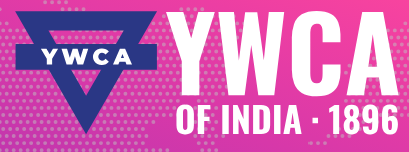About
-
Headquarters
New Delhi, Delhi
The Young Women's Christian Association (YWCA) is a movement dedicated to advancing gender equity by addressing pressing community needs, advocating n Read moreationally, and initiating grassroots efforts. With a presence in over 100 countries, it champions the empowerment, leadership, and rights of women, young women, and girls from diverse backgrounds, faiths, and cultures. Based in New Delhi with 89 associations nationwide, YWCA of India focuses on eliminating inequality and injustice. It collaborates with partners, intervenes in programs, and supports projects targeting marginalized communities, regardless of age, class, caste, or religion. The organization's core aim is to empower marginalized groups, particularly women and young children, enabling them to assert their rights, influence decision-making, and reshape power dynamics. Additionally, it aligns with the government and various stakeholders to address environmental concerns. Through active advocacy, YWCA of India works to influence policies hindering the potential of women and young women. It ensures their representation in decision-making forums, enabling them to voice concerns on global platforms. The organization empowers women through inclusive, feminist-led training programs, fostering leadership and decision-making skills within communities. For over 160 years, it has provided safe spaces, globally and locally, where women and girls can openly discuss issues such as reproductive health, HIV, and violence. With a vision to confront gender inequities, social disparities, and environmental challenges, the YWCA of India remains committed to inclusive interventions, protecting human dignity, and addressing the evolving needs of marginalized communities.
Programs
-
Livelihood & Skill Development Programmes
YWCA focuses on economic independence for women and the inclusion of vulnerable tribal and Dalit communities through livelihood and skill development programs. By identifying community needs, establishing training centres, and making women stakeholders, it fosters sustainable growth. Addressing the Decade of Action's goal to reduce poverty, YWCA accelerates efforts to create employment opportunities, empowering young women and preventing gender inequalities. Tailoring and patchwork groups, Mehendi and Beauty Culture courses, Geriatric Care training, computer classes, livestock development, and bakery training empower women economically and address societal needs. Revenue from sales sustains these initiatives, ensuring their long-term impact and progress.
-
Women Empowerment Programme
YWCA prioritizes empowering young women as catalysts for change by nurturing their leadership and creative abilities. It emphasizes their active involvement in decision-making, policy formulation, and project implementation. Each YWCA initiative emphasizes embedding roles and responsibilities for young women, aiming to elevate them to higher levels. By involving youth in decision-making processes and encouraging their ideas, YWCA aims to cultivate a generation of change-makers, fostering a collective effort towards progress.
-
Advocacy & Civic Engagement Programme
The YWCA of India actively engages in advocacy and civic engagement, particularly in preventing sexual harassment in the workplace (POSH). Through capacity building, seminars, workshops, and consultations, it empowers women to access laws and their legal rights. The organisation provides counselling and crisis intervention and activates redress through Complaints Committees. Its involvement in these committees, mandated after the Vishaka case in 1996, highlights its commitment to combating sexual harassment. The YWCA collaborates with ministries, Government bodies, and legal entities to shape legislation and policy frameworks, influencing the Prevention, Protection, and Redressal of Sexual Harassment at the Workplace Act in 2013. It conducts awareness programmes, trains staff, serves on numerous Complaints Committees and develops resources like posters and handbooks for wider use. Additionally, it has incorporated a policy on Sexual Harassment at the workplace within its personnel policies, ensuring a comprehensive approach to this critical issue.
-
Education Programme
YWCA places a significant focus on providing quality education, aiming to narrow gender disparities and enhance lives. It establishes night schools, conducts adult literacy workshops, and offers remedial classes, primary education, and training institutes. These diverse approaches represent YWCA's commitment to ensuring access to education for children and young women.
-
Community Development Programme
The Pipal Chhaya Project in Trilokpuri, New Delhi, strives to uplift marginalized communities through livelihood initiatives, skill development, and safe spaces for young women's growth. Originating as a refuge during a slum clearance drive in the 70s, it emerged in an area marked by past communal strife. Since 1984, YWCA India has actively provided vocational training, education, legal rights awareness, and initiatives for social issues and health. Empowerment efforts span education, mental health awareness, vocational training, and legal rights education for women, young women, and children. It notably launched a Mahila Cooperative Society, fostering skills and marketable products. Collaborations expanded programs, covering literacy, reproductive health, and combatting domestic violence. Economic rehabilitation, highlighted by a baking unit, took precedence. During the pandemic, women crafted masks and sanitisers for additional income, while a daycare centre supported young mothers seeking employment and children's education.
Leadership Team
M&E
-
Internal, External Assessors
No
Policies
-
Ethics and Transparency Policies
No
-
Formal CEO Oversight & Compensation Policy
No
Political & Religious Declarations
-
On Affiliation if any
No
-
On Deployment Bias if any
No
Registration Details
-
PAN Card
AAATY0787E
-
Registration ID
U99999DL1901PLC003032
-
VO ID / Darpan ID
DL/2018/0193280
-
FCRA
231650115
-
CSR Registration Number
Not Available
Location
-
Headquarters
Village: Sarifnagar, Post Office: Digberia Police Station Mandir Bazar, South 24 Parganas, New Delhi, 743395
Directions
Other Details
-
Type & Sub Type
Non-profit
Section 8 (formerly Section 25)



